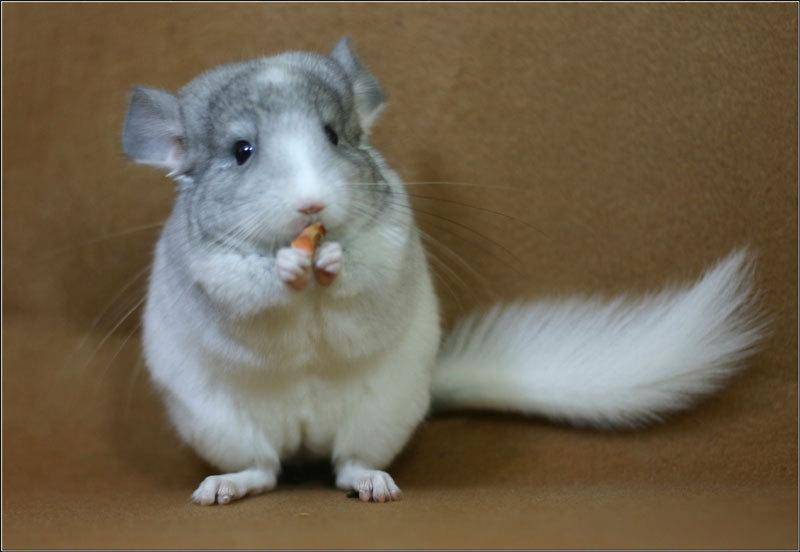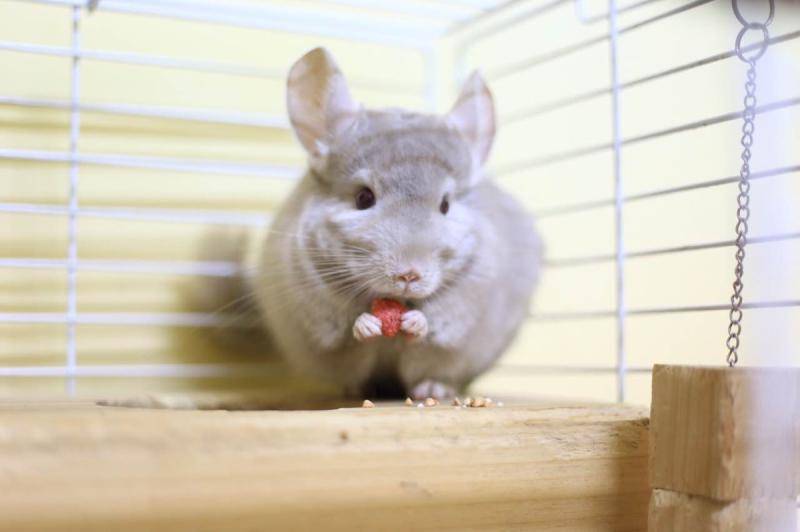Chinchilla is small, round and full of personality. The living wave is active, likes to jump around, and has strong curiosity – it likes to drag everything next to the cage into the cage to “study” it. Chinchilla has a mild temperament and will not attack its people actively. Even if it meets the enemy, it will only escape or pee at the enemy. Therefore, chinchilla is actually very timid. As long as it has trust in you, it will like to play with you very much.
Personally, chinchilla still doesn’t sleep with people.

1. Because of its active nature, it won’t stay by your side and sleep well. When you hold it occasionally, it will fall asleep in your arms, but it is definitely shorter than your sleep time. Moreover, its sleep is very shallow. It will wake up immediately if you make a small action, and its action is agile. Generally, it won’t let you press it.
2. Chinchilla likes to urinate everywhere. If you put it on the bed, it doesn’t know to get out of bed to solve the excretion problem. Moreover, chinchilla has a lot of excreta, so it has to go to the toilet a lot of times. However, because it mainly eats vegetarian food, the stool will not have any taste, but the urine still has an obvious taste. Therefore, it is best not to sleep with it in bed.
Precautions for raising chinchilla:

① Summer is a very disliked season for chinchilla. Because chinchillas have thick fur. Therefore, if you have a chinchilla at home, it’s best to turn on the air conditioner in time to reduce the temperature when the weather gets hot.
② The cage containing chinchilla should be placed in a cool and dry place, but it can’t be a vent, because chinchilla is weak and easy to catch a cold.

③ If the “residence” of chinchilla is very quiet, because chinchilla’s spirit is very sensitive. If the surrounding environment is noisy, chinchilla will be unable to rest well because of mental tension.
④ When the chinchilla is just brought home, the breeder should not rush to take it out of the cage. It is best to let it stay in the cage alone for a period of time, so that it can gradually get familiar with the new environment and new breeder. Then put it out and play for a while. The playing time is short and the activity range is small.

